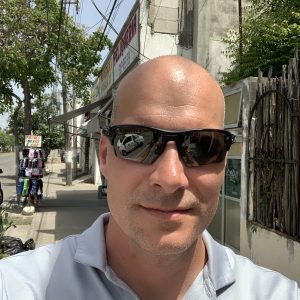It is not unusual for struggling teenagers receiving treatment to present with multiple conditions such as depression, anxiety, substance abuse, eating disorders, self-harming, unaddressed trauma, and other mental health issues. Attempts to self-medicate the symptoms of underlying mental health disorders can lead to the misuse of addictive substances. The mentality of young people with substance use disorder (SUD) is likely to exacerbate other mental health conditions—leading to a damaging self-reinforcing cycle.
“It’s pretty common for the kids who come here to have more than one diagnosis, and for those to be interacting with each other,” confirms John Gordon, MD, Turning Winds’ medical director. “And of course, all of that can be related to what’s been happening in their family or not happening in their family.”
If you are the parent of a child experiencing mental health issues, you’re not alone. In December 2021, US Surgeon General Vivek Murthy issued an advisory on the youth mental health crisis: “Mental health challenges in children, adolescents, and young adults are real and widespread. Even before the pandemic, an alarming number of young people struggled with feelings of helplessness, depression, and thoughts of suicide — and rates have increased over the past decade,”
In March of last year, the Centers for Disease Control and Prevention (CDC) similarly warned of an accelerating mental health crisis among adolescents in the United States, with more than four in ten teens reporting that they feel “persistently sad or hopeless,” and one in five saying they have contemplated suicide.
Addressing all needs of a teenage patient successfully takes time. Many treatment centers are not set up for long-term care and focus on short-term treatment instead—typically 30-90 days. This may be great to get patients back on track but not enough time to facilitate lasting change—especially if multiple conditions require treatment.
Turning Winds offers a residential treatment program for teens in a non-institutional environment, filling in the gaps left by shorter treatment programs. “It can be long enough to really help young people,” says Dr. Gordon. “These days, most psychiatrists just do short-term hospitalization, usually about a week, which isn’t very much time to deal with anything but a crisis. And a lot of the kids here have been in other programs before that either were not long enough or there was too much resistance on the adolescent’s part to make it useful.”
In our experience, adequate time is a must for the growth and change required to help teens with mental health issues; it takes 2–3 months for teens to buy into the process and open up with the treatment team, specifically with the primary therapist, and their peer group.
And while some short-term residential programs offer limited academic services (often online), teenage patients are not engaged in full-time academics which makes them fall behind academically while receiving mental health treatment.
Our medical, clinical, and operations team members will work with you, each other, and your teen to determine a personalized program that gets to the heart of your child’s issues and helps them navigate their healing process.
Your teen will undergo a comprehensive evaluation and will receive a treatment program to complement their needs which will include individual, family, and group therapy while also attending academic classes that provide the necessary structure to each day.
Our mission is to rescue teens from crisis situations, renew their belief in their own potential, reunite them with their families, and put them on a sustainable path to success. Contact us online for more information, or call us at 800-845-1380. If your call isn’t answered personally, one of us will get back to you as soon as possible.









